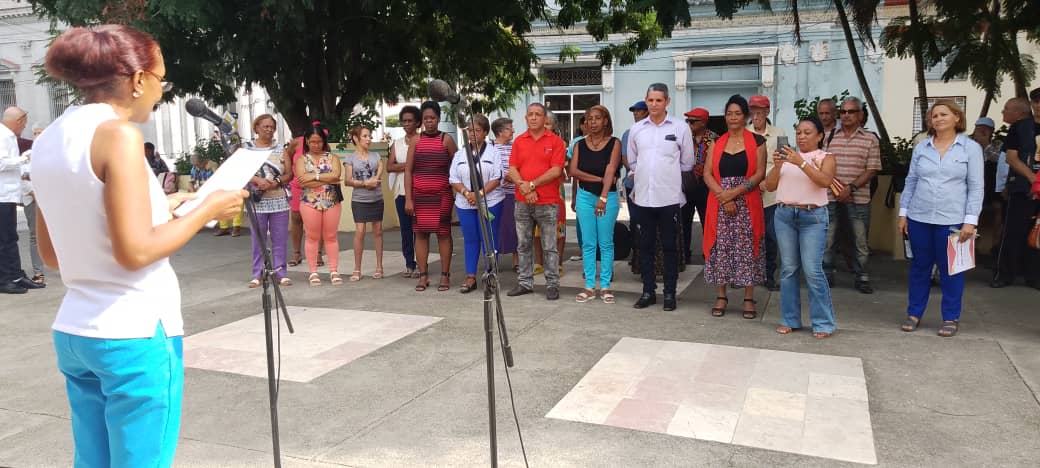 Guantanamo.- The researcher and professor Vivian Díaz Bardají, president of the Association of Cuban Historians (UNHIC), in Guantánamo, received the Luis Morlote Ruiz Provincial History Award, for her lifelong work, at the event for the Cuban Historian’s Day 2024, held this Friday in Antonio Maceo Park, in this city.
Guantanamo.- The researcher and professor Vivian Díaz Bardají, president of the Association of Cuban Historians (UNHIC), in Guantánamo, received the Luis Morlote Ruiz Provincial History Award, for her lifelong work, at the event for the Cuban Historian’s Day 2024, held this Friday in Antonio Maceo Park, in this city.
The José Antonio Portuondo Valdor National Recognition, from UNHIC, was awarded to Diego Bosch Ferrer and Ramón Gómez Blanco, on this occasion, for their relevant work in the research work and promotion of the cultural history of the nation.
In turn, the Provincial Committee of the UNHIC, in Guantanamo, distinguished with the Rolando Quintero Mena Recognition, historians with notable results in investigative work, research and show the popularization teaching about local History and with certifications to grassroots sections. Avant-garde and Featured, awarded to other similar ones in Baracoa, in the initial act for Historian’s Day (July 1st).
Marielis Fuentes Oquendo, head of the ideological department of the Party in the province, and Omar Estrada Soto, coordinator of Government programs at that level, led the granting of incentives at the provincial event, by representatives of cultural organizations and institutions, to Guantanamo historians.
PhD. Wilfredo de Jesús Campos Cremé, who is 2021 Provincial History Prize and member of the UNHIC National Committee, in his concluding remarks expressed the gratitude for the tribute paid by specialists and people to the late Emilio Roig de Leuchsenring, for his contributions to this science in Cuba.
Campos Cremé recalled that the date of Roig’s appointment as Historian of the City of Havana was chosen as Historian’s Day in Cuba. He reiterated the commitment of his current followers to increase research in this local, national and universal field, with the development of the critical thinking.
As every year, for Historian’s Day a day is held between June 17 and July 31, the dates of the deaths of Máximo Gómez Báez and Eusebio Leal Spengler, respectively.
Translated by Liubis Balart